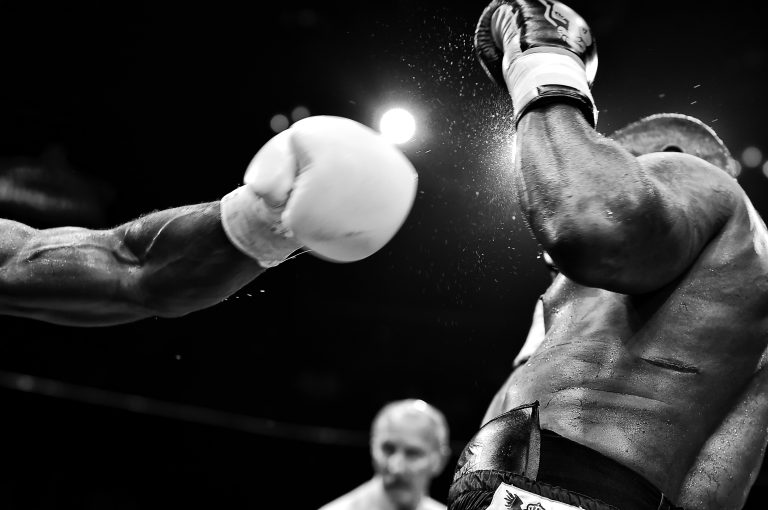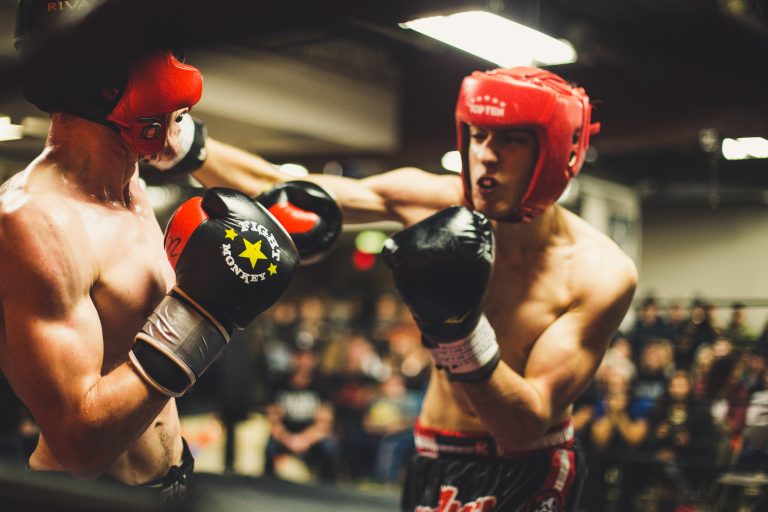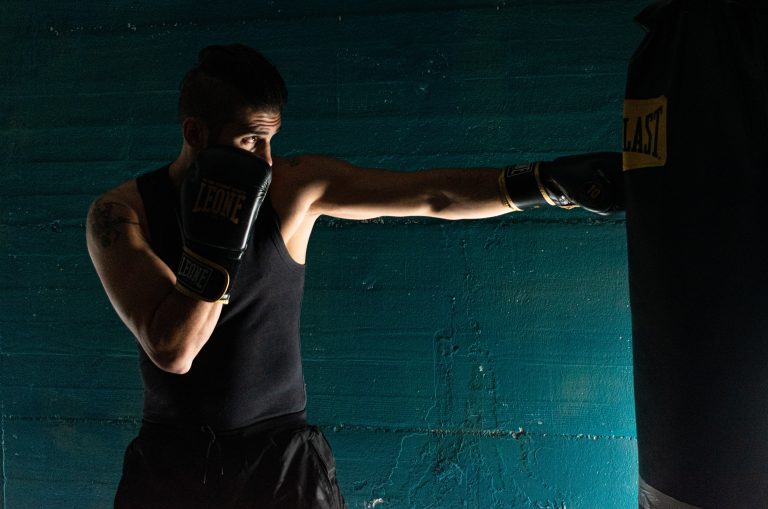The 10 Biggest Challenges in Karate Training and How to Master Them
Karate is a martial art that focuses on self-defense and self-discipline. It’s a physically and mentally demanding sport that can provide lifelong benefits. But as with any martial art, there are challenges that you may encounter during your training. Here are the 10 biggest challenges in karate training and how to master them.
1. Physical Conditioning
Karate requires a high level of physical fitness. You need to build up strength, flexibility, and endurance. The best way to do this is by engaging in regular physical exercise. Cardiovascular exercises like running or cycling, weight training, and yoga can all help in building an excellent foundation for your karate training.
2. Proper Technique
Karate techniques require proper form and execution. Poor technique not only affects your performance but can also lead to injuries. It’s essential to learn the correct technique from a qualified instructor and practice it regularly. Keep in mind that mastering the basics will set you up for success.
3. Mental Toughness
Karate training can be mentally and emotionally challenging, especially during sparring or when competing. Developing mental toughness takes time and practice. Learn to control your thoughts and emotions, stay calm under pressure, and focus on the task at hand.
4. Patience
Karate training requires time and dedication. Mastery cannot be achieved overnight, and it takes time to see results. Practice regularly, stay consistent, and be patient with yourself.
5. Injury Prevention
Injuries can occur during karate training, and it’s crucial to take steps to prevent them. Make sure to stretch before and after training, wear proper protective gear, use proper technique, and listen to your body. Don’t train while injured, as this will only prolong the healing process.
6. Plateaus
Plateaus can happen during karate training, where it feels like you’re not making progress. To overcome plateaus, try new training methods, set new goals, focus on your weaknesses, and seek feedback from your instructor.
7. Adaptability
Karate is an ever-evolving martial art, and it’s essential to adapt to new techniques and training methods. Be open-minded, learn from others, attend seminars, and stay up to date with the latest trends.
8. Competition Nerves
Competing in karate competitions can be nerve-racking, especially if you’re competing against experienced practitioners. To overcome competition nerves, prepare thoroughly, visualize success, and focus on your breathing.
9. Time Management
Karate training can be time-consuming, and managing your time effectively is crucial. Set aside dedicated training time and create a schedule that works around your other commitments.
10. Consistency
Consistency is the key to success in karate training. Make karate training a regular routine, and stick to it. Keep practicing, stay motivated, and remain focused on your goals.
In conclusion, karate can be a challenging sport, but with perseverance, dedication, and commitment, you can overcome these challenges and become a skilled practitioner. Remember to engage in regular physical exercise, focus on proper technique, develop mental toughness, be patient, prevent injuries, overcome plateaus, adapt to new techniques, manage your time effectively, and remain consistent. Good luck on your karate journey!
The 10 Biggest Challenges in Karate Training and How to Master Them
Karate is a popular martial art form that originated in Japan. It involves various techniques such as strikes, kicks, and blocks that require a lot of practice and dedication to master. However, like any other discipline, karate training comes with its own set of challenges. In this blog post, we will discuss the 10 biggest challenges you might encounter while training in karate and how to overcome them.
1. Consistency
One of the biggest challenges in karate training is consistency. Many martial artists struggle to maintain a regular practice routine due to their busy schedules or lack of motivation. While starting a training program is easy, keeping up with it can become difficult over time.
To overcome this challenge, it’s important to set achievable goals and create a training schedule that fits your lifestyle. You can also join a karate class or find a training partner who can keep you accountable.
2. Physical Fitness
Karate training involves a lot of physical activity, and therefore, it requires a certain level of fitness. Beginners may face difficulties in keeping up with the rigorous training demands as it involves strength, speed, and flexibility.
The best solution to this challenge is to maintain a good physical fitness routine by including cardio and strength training workouts in your daily schedule, along with regular karate practice.
3. Proper Technique
Karate involves a range of techniques such as punching, kicking, and blocking. It is essential to learn the proper technique for each move to avoid injury and maximize the impact of your strikes.
Practice with a senior instructor, take private lessons or online lessons, and attend seminars and camps to refine your technique.
4. Mind and Body Coordination
Karate requires the coordination of your mind and body to perform various techniques. Beginners often face difficulty coordinating their movements with their thoughts on the execution of the technique.
To improve mind and body coordination, one must start with basic techniques and gradually move to advanced moves. Always listen to your body and let it guide you—it takes time, but with consistent practice, you will improve.
5. Fear
Fear is a common emotion experienced by martial artists. It can come from a variety of sources such as fear of failure, fear of injury, or fear of intimidation.
To overcome fear, it is important to realize that it is natural and learn to control it. Exposure to repetitive practice and facing your fears gradually through your training will help. Mental exercises like visualization and imagining oneself performing perfectly can help decrease anxiety.
6. Limited Sparring Partners
Sparring is a crucial part of karate training that helps develop fighting skills, timing, and reflexes. However, finding suitable sparring partners can be challenging if there are limited options available.
Attending tournaments and seminars can provide opportunities to spar with different individuals. Training with a partner also requires mutual trust and respect to avoid injuries.
7. Mastering the Kata
Kata is a solo drilling technique, often referred to as „shadowboxing.“ It involves using a series of movements and techniques in a set order. However, mastering the Kata can be challenging due to its complexity.
To master the Kata, you need to start with the basics, focus on quality, understand the application of each movement, and practice every day. It’s essential to break down a Kata into smaller parts and perfect each part before moving to the next.
8. Mental Endurance
Karate training requires mental toughness, endurance, and focus. A lack of mental endurance can lead to exhaustion and burnout.
To improve mental endurance, focus on your breathing, develop a strong internal dialogue, visualization techniques and involve yourself in regular meditation exercises.
9. Injury Prevention
Karate training can lead to various injuries, such as sprains, strains, or even dislocations. Injury prevention is vital for a sustained and safe training program.
Pay attention to pre-training conditioning, ensure that you have sufficient rest after workouts, know your limitations, and focus on correct technique to reduce the risk of injury.
10. Mental Blocks
Mental blocks come in many forms, such as negative self-talk, self-doubt, and comparing yourself to others. These blocks can hinder your progress and cause you to lose your confidence.
To overcome mental blocks, it’s crucial to focus on your own training and goals, stay positive, reward yourself for small successes, and set achievable goals.
Final Thoughts
Karate is a challenging and rewarding martial art. However, like any other discipline, it comes with its own set of challenges that require consistent effort to overcome. By following the tips outlined in this article, you can stay motivated and focused and master the art of karate.
Inhaltsverzeichnis






